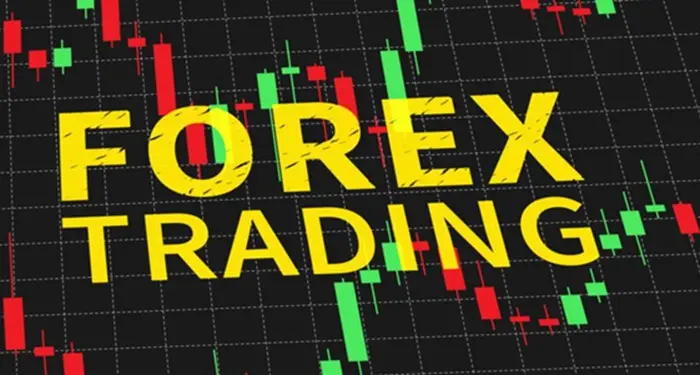When you first enter the world of forex trading, understanding the spread is crucial to making informed decisions. The spread is a significant component of trading costs, but it can still be a little difficult for new traders to understand. This article will take a deep dive into what the spread is, how it is calculated, and why it is important in forex trading. Ultimately, you will have a clear understanding of how the spread affects your trading and how to incorporate it into your trading strategy.
What is forex spread?
Before you calculate the spread, it is important to first understand what it means. In forex trading, the spread is the difference between the bid (ask) and ask (buy) price of a currency pair. In simple terms, it is the cost of executing a trade with your broker.
The spread is measured in pips, which are the smallest unit of price movement in the forex market. For example, if the ask price of the EUR/USD currency pair is 1.1200 and the bid price is 1.1198, the spread is 2 pips.
Types of forex spreads
Forex brokers offer different types of spreads, the most common types are:
Fixed spreads: Fixed spreads remain the same regardless of market conditions. Since spreads do not change with market fluctuations, they are often favored by traders who want predictable costs.
Floating Spread: Floating spreads fluctuate depending on market conditions. They widen or narrow depending on factors such as liquidity and volatility. In times of high market volatility, spreads may widen, resulting in higher transaction costs.
Understanding the differences between these spread types is crucial for traders when deciding which broker to choose and how to plan their trades effectively.
Why Does Spread Matter in Forex Trading?
The spread has a significant impact on the profitability of your trades. Essentially, the wider the spread, the more you need the price to move in your favor to break even or make a profit. Since Forex brokers make money from the spread, it is an important factor in determining your trading costs.
In addition to trading costs, the spread can also affect your entry and exit strategies. For example, if you’re trading with a wide spread, it might take longer for the price to move enough to overcome the cost of the spread and turn a profit.
How to Calculate the Spread in Forex?
Now that you understand what the spread is and why it matters, let’s explore how to calculate it.
Step 1: Identify the Bid and Ask Prices
The first step in calculating the spread is to identify the bid and ask prices of the currency pair you want to trade. For example, let’s say you are looking at the EUR/USD pair, and the current bid price is 1.1200, and the ask price is 1.1203.
Step 2: Subtract the Bid Price from the Ask Price
Next, subtract the bid price from the ask price to get the spread. In this case:
Ask Price = 1.1203
Bid Price = 1.1200
Spread = Ask Price – Bid Price
Spread = 1.1203 – 1.1200
Spread = 0.0003 or 3 pips
So, the spread is 3 pips for the EUR/USD pair.
Step 3: Understand the Spread in Terms of Trading Volume
The spread can also be expressed in monetary terms, depending on the size of your trade. The larger your trade size, the higher the cost of the spread.
For example, if you are trading 1 standard lot (100,000 units) of EUR/USD, and the spread is 3 pips, the cost of the spread will be:
Cost of Spread = Spread in Pips × Pip Value
Cost of Spread = 3 pips × $10 (the pip value for a standard lot)
Cost of Spread = $30
So, for this trade, the cost of the spread is $30.
How Spreads Affect Your Forex Trading Strategy
Now that you understand how to calculate the spread, it is crucial to understand how it affects your trading decisions. Spreads can affect your entry and exit points, as well as your overall risk management strategy.
How Spreads Affect Your Entry Point
Spreads affect your entry point in Forex trading. When you enter a trade, you are automatically at a disadvantage because you buy at the ask price and sell at the bid price. This means that in order to break even, the market must move in your favor by at least the amount of the spread.
How Spreads Affect Your Exit Point
Spreads can also affect your exit point. For example, if you want to exit a trade and make a profit, the price must not only move in your favor, but also cover the cost of the spread. In a market with a wide spread, the price must move in a more favorable direction for you to close the position at a profit.
How Spreads Affect Your Risk Management
Understanding how spreads work is essential to your risk management strategy. A wider spread means you need a larger price movement to reach your target profit. This may affect your trade size and stop loss level, as you need to consider the spread when determining your risk.
Different currency pairs and their spreads
Not all currency pairs have the same spread. Major currency pairs typically have smaller spreads, while exotic currency pairs have wider spreads. This is due to differences in liquidity and market demand.
For example:
Major currency pairs such as EUR/USD, GBP/USD and USD/JPY typically have smaller spreads, often as low as 1 pip.
Exotic currency pairs such as USD/TRY or EUR/ZAR have wider spreads, sometimes reaching 20 or 30 pips due to lower liquidity.
Traders trading less liquid currency pairs may face higher costs due to wider spreads, which can eat into potential profits.
How to Minimize Spread Costs in Forex Trading
While spreads are an unavoidable part of Forex trading, there are a number of strategies you can employ to minimize their impact on your trading.
Choose a broker with low spreads
One of the most effective ways to reduce spread costs is to choose a broker that offers low spreads. A broker with low spreads allows you to trade at a lower cost, significantly increasing your long-term profitability.
Trade during times of high liquidity
Spreads tend to be tighter during times of high liquidity, such as when the major Forex markets are open (London and New York trading sessions). Trading during these times can help you avoid paying high spreads, which tend to occur during times of low liquidity.
Consider using a market maker broker
Some brokers (called market makers) offer fixed spreads, which are more predictable. While the spreads charged by market makers are generally slightly higher than those charged by ECN brokers, the degree of consistency they offer can be beneficial for certain trading strategies.
Avoid trading exotic currency pairs with high spreads
Exotic currency pairs have wider spreads due to lower liquidity. If you want to reduce costs, it is best to avoid trading exotic currency pairs unless you have a specific reason.
Conclusion
Forex spread calculation is a vital skill for any trader. It directly affects your trading costs and can affect your profitability. By understanding how spreads work, calculating them and choosing the right trading strategy, you can minimize their impact and optimize your trading results. Always factor spreads into your risk management and trading plan to ensure you make the most informed decisions.
Whether you are a beginner or an experienced trader, mastering the concept of spreads will significantly improve your ability to confidently navigate the Forex market.
Related topics:


































